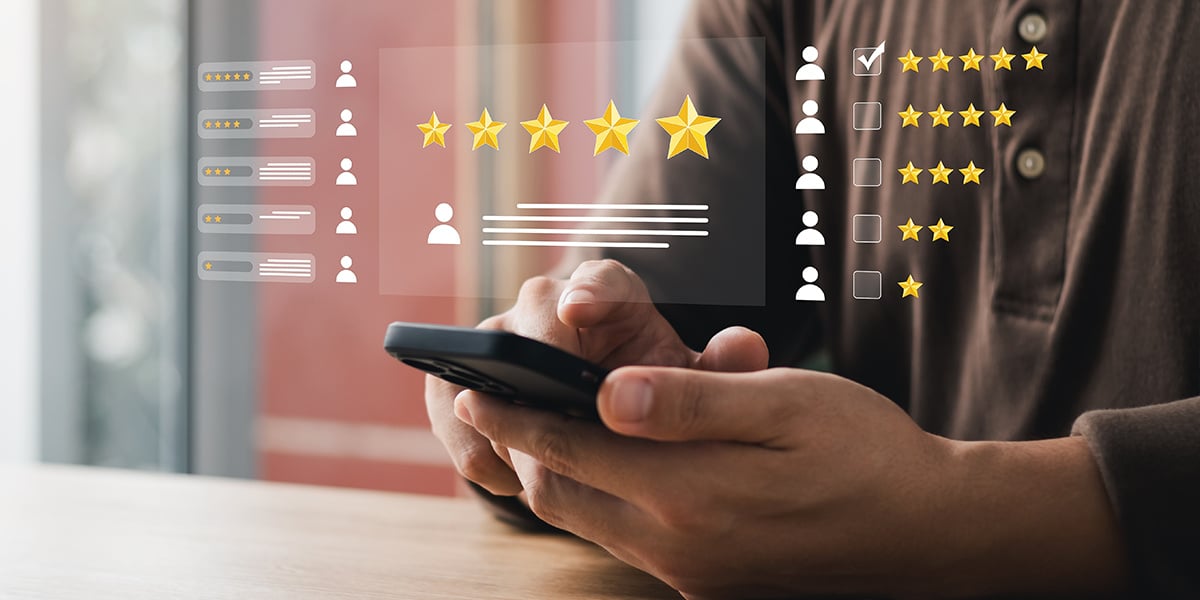We all know the good old “the chicken or the egg” mind game. People have been arguing for centuries, and nobody ever gets to the end of the vicious circle anyway. Yes, you are reading correctly – the end of the vicious circle. Similarly, even the most forward-thinking business leaders cannot agree to what extent employee and customer experience strategies should overlap. Although the first notion of employee experience could date back to the establishment of the first trade union, the concept of EX as we know it today has been created relatively recently. Therefore, very little research has been conducted, and decision-makers continue to argue whether an employee-centric focus is worth the investment. CX Insider interviewed Salman Sharif, Senior CX Advisor, who (Spoiler alert!) firmly believes the employee comes first and EX should be the building block on any CX strategy.
Episode 47
Episode Summary
What is employee experience?
Employee experience could be defined as the total sum of an employee’s emotional responses through the employee journey within a company. Although the sceptics might argue that the HR department is already managing this function, it is not as simple as it seems. While HR managers care about the benefits, perks and policies affecting the employees’ experience internally, marketers try to understand how an employee’s happiness could deliver a better customer experience. This leads us to the following question:
Does employee experience directly correlates with customer experience?
“Yes, it definitely does,” says Salman Sharif and quotes Richard Branson, the founder of Virgin Atlantic. According to Salman, employees typically do not want to deliver poor customer experiences, and they most certainly do not wish to be shouted at over the phone. Therefore, if business leaders want to provide better CX, they should think about improving the experience of their employees first. Salman even argues that employees might prefer an employer who makes it easier for them to deliver better experiences.
“Clients do not come first. Employees come first. If you take care of your employees, they will take care of the clients.”
Richard Branson
If an organization does not look after their employees, set clear expectations and take care of their employees’ wellbeing, it is far more challenging to deliver successful outcomes. Similarly, if the same approach is not taken in the context of customer experience, no positive results can be expected. Salman, therefore, believes that both models go hand in hand, but managers should think about the employee first.
What will EX look like in the post-pandemic world?
While working from home used to be a privilege for high-performing people, this kind of workspace quickly became necessary at the beginning of 2020. Adaptability in a rapidly changing environment has proven to be a real strength during the pandemic. This ability will enormously reward both employees and organizations. However, for most managers, the real challenge will be managing a hybrid situation in which some people work in an office, and others work from home. Time will show how this type of environment will change the dynamic of work relationships.
This article summarizes podcast episode 47 ” Who Comes First, the Employee or the Customer?” recorded by CX Insider. For more information, listen to the episode or contact Salman on his LinkedIn profile.
Written by Valentina Svobodova
Full episode transcript
Valentina: Would you say that employee experience directly correlates with customer experience?
Salman: I would say overall, yes, it's something that the whole point, especially for employee experience existing, is that it's there to serve a better customer experience. So the premise is that if you're a happy employee, like the famous quote from Richard Branson regarding regarding Virgin Atlantic in particular is if you are a happy employee, you look after employees first, customers second, and happy employees would deliver better experiences.
Valentina: In today's episode, I am talking to Salman Sharif, a senior CX adviser who was also voted one of the top 25 CX influencers. And it's all about employee experience and how delivering great EX can help you become CX mature. Enjoy the episode today without Adam or Greg, just me, Valentina and let us know what you think on social media. Hello, everybody, and welcome to another CX Insider podcast episode. Today, I am joined by Salman Sharif, who works as a senior CX adviser for Forrester, a large research and advisory company. Hello, Salman, thank you for coming on our podcast.
Salman: Hi there, Valentina, and thanks for having me.
Valentina: How are you today?
Salman: And doing quite well. It's, it's Friday. Looking forward to the weekend. It should be interesting weather-wise, that's for sure. In London at least.
Valentina: Hopefully. Hopefully, it'll be good. Yeah. So, Salman, could you tell me a bit about yourself and how did you actually get to the CX sphere? Did you always work in customer experience or how did you get involved?
Salman: Yes, it's an interesting question. I think CX is an interesting space with so many different people who come from so many different walks of life. And that's what makes it so, so interesting overall. Mine's probably not is as varied as many others. Initially, when I first started working after my education, I actually started a small strategic marketing consultancy and initially were kind of working on a number of different kind of strategic marketing projects and innovation-related projects, which were incredibly fun and interesting, especially from coming out at university. And then eventually what happened was we ended up running a number of different customer strategy related projects. And that was something that to me was really interesting, really fascinating. And having worked on the front line in terms of customer service, plus I was working part-time and always kind of thinking about how organizations treat customers, how they develop experiences. This was always really fascinating to me and it is very interesting just to see the whole industry essentially had kind of popped up in the time that I'd been working in that first organization. And I thought, actually, this is something that comes quite naturally to me in terms of my orientation and having empathy with the customer. And also something I find super, super interesting in terms of, you know, on a day to day basis. So I wanted to make it my full-time focus. And fortunately for I was looking for a customer experience advisor at the time, and they chose me to be that person. And from there you can kind of say the rest is history. I've been working with with clients on a regular basis for the past five years on making their organizations more customer-centric across all industries or actually many geographies as well across the US, Asia, Pacific and primarily the EMEA region as well. It's been been a very varied experience.
Valentina: Mm hmm. So from marketing to customer service to customer experience, yeah, it probably does make the most sense.
Salman: Yeah, it's quite, quite a natural path. And it's not one that has had too many twists and turns. But yes, I'm glad to be able to establish that very early on.
Valentina: Yeah. So looking on your LinkedIn profile, you say that you work with companies across industries with varying degrees of CX maturity. So how would you actually define maturity? And maybe on the top of that, how do you measure the different stages of a company's CX maturity?
Salman: So with regards to its management, maturity is typically what happens is organizations will set up a small customer experience function with maybe one or two people. So you have a head and maybe somebody who kind of reports and some like an analyst or or a manager and they will it just kind of go about their initiatives. They'll go where the organization essentially leads them. They'll search for a measurement program. They will look at the customer journeys. And that will be the kind of the beginning of the program itself. And then it starts to become more mature if it's successful. And to really make a difference in the organization used to, you have to start to be more focused and more deliberate about how you actually go about delivering your customer experience initiatives. And that's basically where with maturity comes in. So if you are looking at all different competencies and so it could be how you research customers, it could be how you design experiences, it could be how you develop a culture of customer-centricity. This all becomes a way of measuring your maturity over time and how you know, how accountable are different people in your organization. How rigorously do you approach specific initiatives and how do you manage those going forward? It's about just really thinking about how you're from a future-thinking perspective. What are you actually going to do to really embed these initiatives in the organization? In the more mature you are, typically, the more customer-centric an organization should be is not always hand in hand, but that is typically the way it goes. So, yeah, it's it's interesting. And having worked many different types of organizations at the beginning as well as who are some who've been very, very advanced in customer service. Maturity is always lots to learn from, from each side and the way everybody starting out. So a fascinating time for four different businesses at this point for sure.
Valentina: Mm hmm. Interesting that you said that at the initial stages of CX maturity, usually the company sets up a specific function dedicated to CX. So I wanted to ask you, what do you think about the approach of creating a CX dedicated team or department within the company, separate from everything else, directly reporting to the C-level management in order to climb up the ladder of CX maturity? Are you one of those who see this as a non-negotiable must or do you think that that's not that necessary in order to become CX mature?
Salman: Yeah, I think that it's a difficult one to answer because overall or in an ideal world, that would not really be the way to do it, because you would if you were the CEO, if you were the chief marketing officer, you would basically have anyone in the senior management. You would basically task everyone with being customer-centric. Customer centricity would be built into your culture from the beginning. You would have a strategy that is based on customer centricity or you'd at least have a very good awareness of of how you engage with customers and how you're actually serving them most effectively. So you would if you were the one in charge of the whole business, that's the way you would typically do it. But the problem is that, you know, organizations are not always set up that way. They need to be their own silos. There are many different ways of working. And obviously, over time, as businesses develop, there are things that they will continue to patch on to the way they operate. And therefore, CX kind of becomes a bit of a patch on as well. So you do have to have a separate organization. They have to be the ones who are kind of dedicated to being the ones who understand the customer as best they understand the principles of customer experience really well. And they will try to from their core of the organization, get the other and the rest of the organization to to actually work with them and and drive customer centricity overall in the organization. So it's hard. And that's why customer experience teams need a lot of help and they do need to gain Buy-In from senior-level executives to do that. But it's still something that works. If you see something like Amazon, for example, and I say it's a difficult conversation to have sometimes about Amazon, but overall, when they set up, it was all about serving the customer relentlessly. They do have customer experience teams. They do look into the customer experience overall as a discipline as well. But from the get go, they were the ones who really set the whole customer-centricity emotion, and that's their way of being, some of them are actually very well suited, some very well suited to delivering a customer-centric experience. Some of them are not so interesting to see how that works.
Valentina: As much as much as a customer experience became kind of a, I would say a buzzword in the last several years, because sometimes I'd say that maybe it's maybe overused in the wrong in the wrong context. Sometimes it's perceived as a as a kind of marketing strategy. And it should be part of your branding. And I agree. But people sometimes miss out on the fact that it should be an overall business strategy. Yeah, probably going through all the departments within the business. And that being said, employee experience is not so often perceived as the integral part of CX. And that probably will be my next question. What role specifically do you think that EX plays in in becoming CX mature?
Salman: So it's an interesting one. I think the reason why you don't see so much of a focus on eX yet is because, it- twofold. One is that the employee experience element is something that is still fairly nascent, still fairly new, is not is not brand new, and it's not a revolution in itself as people have been looking at the digital experiences, the and the employee journey and the way employees are driven to being more engaging with their organizations for a very long time. But the discipline of employee experience in order to serve customer experience in the way we talk about it today is still fairly new. And so that's that's one of the reasons why people aren't so much aware of it. And the point is as well that there isn't really a strong owner for employee experience yet in in an organization, it can be many different types of parts of the organization in which it sits. So it can be sometimes led by H.R. traditionally and even kind of with them branching out into in the employee experience realm. It can also be a dedicated employee experience function that sits on top of the H.R. or alongside an H.R. Function. And even sometimes it can be the customer experience team that leads this as well. So it's just finding a home for employee experiences is quite hard, not knowing exactly where to make it work. And then also some people see is conflicting with and the traditional H.R. strategy as well, whereas actually it's complementary. And then the thing the employee experience is typically about is looking at driving better engagement from for employees, from an understanding that better from here on the saying that their employee journey as well, is actually just understanding their path within an organization in terms of how they progressed from a career point of view and actually are invested in doing the best way they possibly can. Whereas HR typically, apart from obviously managing the journey to a certain extent, is really about policies, about making sure that there are benefits in place for employees. It's about remuneration. That's a very different set of areas to focus on. And that's why I think it's just not something that is seen fully yet. And those who are typically skeptical about customer experience are normally skeptical about employee experience at the same time. So whenever they see an issue ahead of the experience, yeah, this is probably not something we should be investing in for some reason.
Valentina: Hmm. Yeah. Would you say that employee experience directly correlates with customer experience?
Salman: I would say overall, yes. It's something that the the whole point, especially for employee experience existing, is that it's there to serve a better customer experience. So the premise is that if you're a happy employee, like the famous quote from Richard Branson regarding regarding Virgin Atlantic in particular is if you are a happy employee, you look after the employees first, customers second, and happier employees who deliver better experiences. I think overall that that does seem to ring true. The interesting thing is as well, you know, typically employees don't want to go about having poor experiences with customers. They don't want customers to feel dissatisfied. They don't want customers to shout at them over the phone or in person. They are actually orientated towards delivering better economic makes because that makes their lives easier. But the interesting part is that if you want to make it easier for employees to do better experience, you have to think about the processes. You have to think about it, their own challenges that go through and the rules that the set as an organization, in terms of flexibility, in terms of trust, in terms of the design of a role and how that really comes together, say, if you aren't doing that and you aren't thinking in depth about how an employee shows up to work, how they actually go through a typical day, what systems, what what processes, procedures, as I said, are enabling them and which ones are actually inhibiting them from being a good experience, then that becomes far, far more difficult, and especially if employees find the other employee is actually delivering better experiences compared to something like pay and remuneration, overall, they may be more likely to choose an employee, an employer that actually is making their lives easier over time in comparison to the one that's actually making it more difficult if you're comparing largely the same type of organization.
Valentina: Mm hmm. I'm going to looking at it from a slightly different perspective. I'm going to ask a strange question. But when you when a company is aiming to become a fully customer centric six mature and they want to build strategy, what comes first, customer or employee?
Salman: Yeah, this is a very good question. Is a chicken or egg scenario. And it's was like like like what is it in terms of just the example quote from Richard Branson in terms of the Virgin approach. I think that, yeah, if you had to start off from from scratch, if you're looking at how employees need to be looked after, how they need to be understood by an organization, and they and they need to feel like you need to show up and to do their best, there is a reason to do that is a meaningful purpose. You are actually engaging with them in a way that means that in the future they'll be better off by spending four or five years with you compared to others. I think the employee experience is absolutely critical. And if you get that wrong as well, then then that impacts hugely on your employee experience, on your customer experience. And that makes it far more difficult for you to be successful as an organization if your employees are dissatisfied and aren't clear about what their expectations are and always heading in the wrong directions and don't know what they're doing. Obviously, that's not always going to be the case. But, you know, if you don't invest in that and you don't set them up, well, then of course they would deliver the wrong outcomes. So that's what I would say. At the same time, if you're not investing, understanding customer experience and you're not looking at holding a mirror up to the organization and saying this is what what kind of pain we're inflicting on on customers, look how difficult this process is. Look how difficult it is for for customers to do business with us. If we made it easier, they would actually spend more with us then that's you know, that's also something that is a really critical error. So they do go hand in hand. I think that you do have to think about the employee before. And I think that actually, if you were to sum it up historically, there probably has been a bit more effort on the employee side than there has been from a customer side. So the whole notion of customer experience overall, looking at customer service, looking at CRM now, it's become customer experience is far more nascent than actually looking at training, looking at looking at the tools and the technologies that are available. You know, those have been around for a lot longer from an employee point of view than what we see from a customer for a customer point of view. So that's something that we should definitely look into in.
Valentina: Considering the current pandemic situation and looking into the future once the pandemic ends, do you see any trends that will remain relevant after the pandemic ends?
Salman: I think particularly as we're talking about the employee side of things, there is there is really an interesting number of implications here, because if we're looking at collaboration from a remote point of view, from looking at virtual tools, you know, I was fortunate. I was in a role where actually much of my team was actually based in a different country for me entirely and on a different continent. So I had to be better at collaborating from a virtual point of view most of the time. So for some people, for many people, collaborating virtually really began in March 2020, and that's something that they had to learn from scratch and actually become very, very effective at it very quickly. And I think that that ability for for people to learn, for people to adapt and to actually be effective without being present in person, I think that is something that hopefully will stick. I think that, you know, this is something that employees proven improvement organizations that you actually give them that ability, you make the flexibility to make the transfer happen. That is something that they can actually reward you quite strongly in the future. What will be difficult, I think, from here. Having said that is actually managing a hybrid situation where you have some people in an office, some people working from home. That was obviously true to to a certain extent previously you did have homeworkers and we essentially just joined those home workers, mostly in 2020. But I think now it's going to be the balance of the number of people who are going to be remote versus those who would be in person. And also the seniority, the influence, the essentially the power those people have who are going to be sitting at home versus those who are in an office will be really interesting to see that dynamic change. So I think that whilst we have been very much more productive remotely and have had to do that under essentially very difficult circumstances, when things become a bit more free and we have a bit more choice about them and they become a little bit less uniform, maybe this is going to be an interesting shift in terms of how that will change in the future. But still, I think that the and regardless the evidence is there that you can even in difficult situations, you put employees in positions where they have to be trusted. They will definitely reward you quite strongly, I think, overall. And they give them the right tools. They can definitely do it.
Valentina: Yeah. Yeah, you're right. Well, we need to well, we're getting closer to to the end of the episode. So I guess my last question to you would be what kind of advice would you give to future aspiring CX leaders?
Salman: Yeah, I think it would be two things, really. I think one is is always try and generate as much empathy with the customers as you possibly can in an organization. I think that's what will actually and it's really hard to do, as I've said, it's quite hard to do and think that. And that's what really gets to the kind of the real buying. That's what gets the switch turned on from a from an organization point of view. That would be the number one thing. And secondly, as much as possible and it's probably more for organizations rather than excluding themselves. I think there's a huge kind of metric obsession in terms of saying what does that tell us? And that is basically the be all and end all of how how good our customer experience actually is and one that's very important. And you should have a metric that you are aiming towards. What you shouldn't be doing is is I think, just being distracted by that specific metric should you know, you can't look at it in isolation. It is a no. It is something that, you know, is not always the sum of all the experiences and all the other initiatives that you're putting in place. So definitely one way, way harder towards those as well. Yeah, this is basically, I think, the same time. It's a good it's certainly a good opportunity and a good time to be a leader because there are so many organizations waking up to this and will in the future, most likely be more and more customer-centric going forward.
Valentina: Thank you, Salman.
Valentina: I hope you enjoyed the episode and our talk on employee experience and the importance of building CX strategies. If you like the episode, please don't forget to like share comment or subscribe to the podcast on your favorite channel. And I will see you next Monday.







